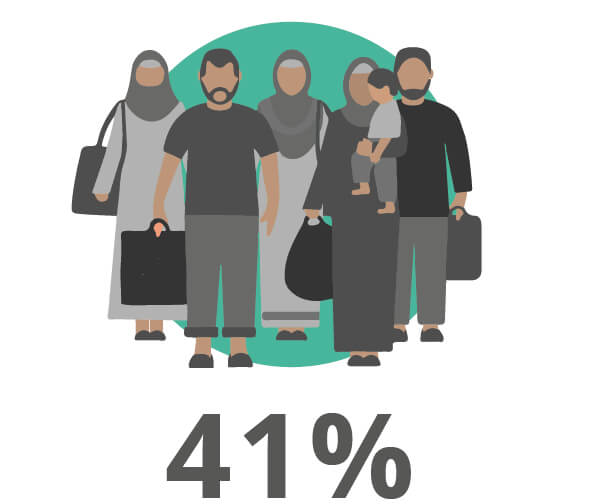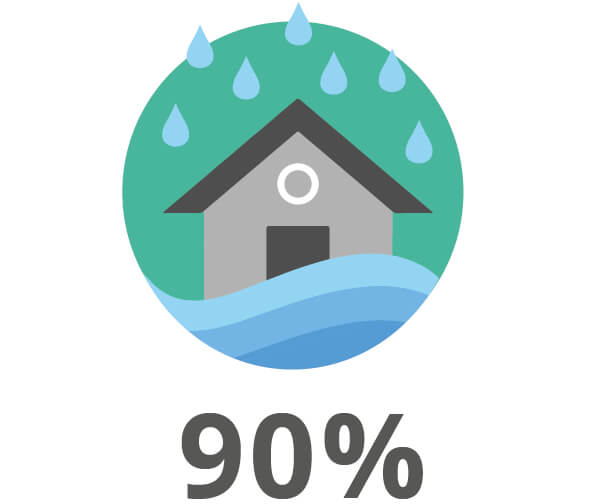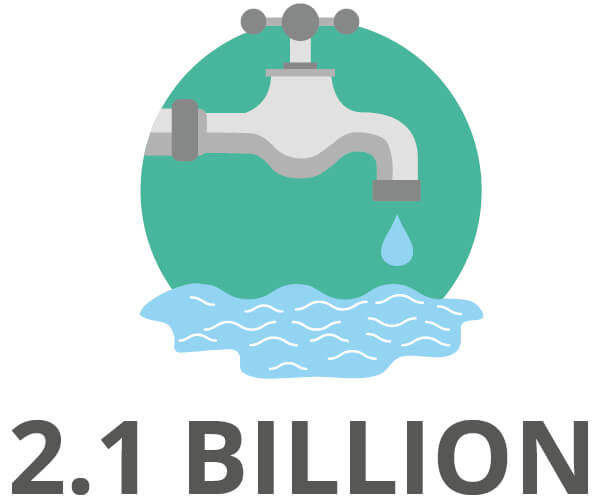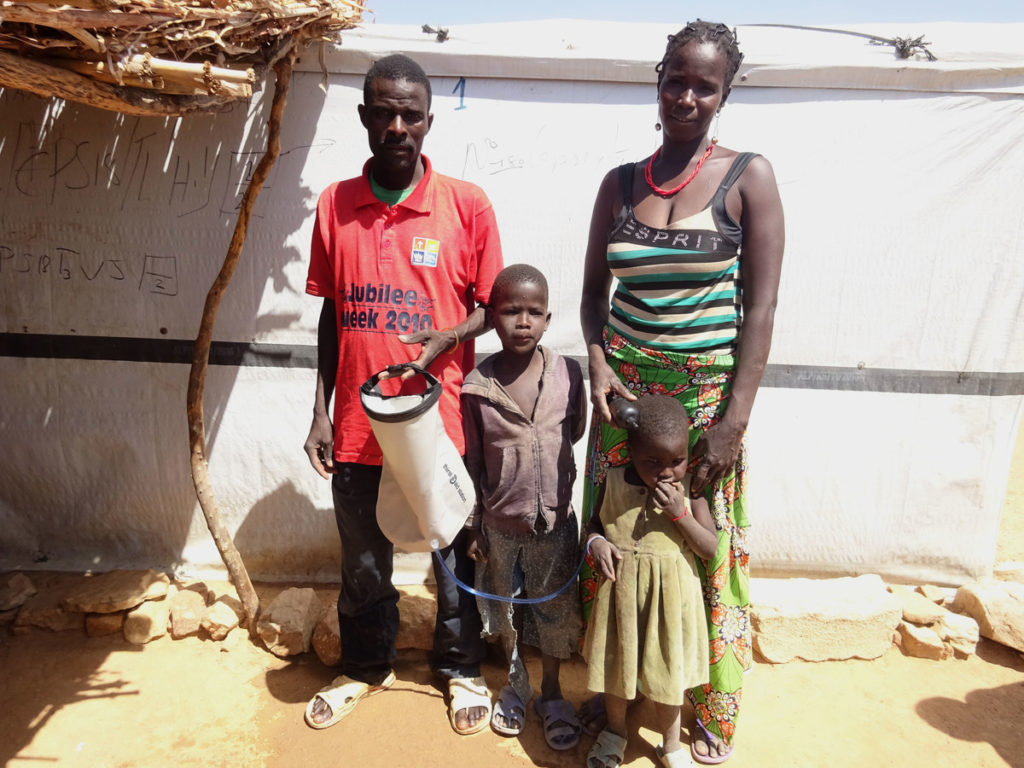Our aid
Discover the aid items that you provide to help families rebuild their lives
Water, just like shelter, is a human right.
Whoever you are, wherever you are – you are entitled to clean, safe water.
But today, billions of people around the world do not have access to safe drinking water.
When disasters devastate whole communities and force families far from home, it can be hard to ensure access to clean water.
Families often find themselves in inhospitable areas or overcrowded camps where finding safe water is a daily struggle.
By providing families with water containers and water filters, we can make safe drinking water one less thing to worry about.

of the world's refugees do not have access to safe drinking water

of all natural disasters are water-related (UNISDR)

people lack access to safely managed drinking water services (WHO/UNICEF 2017)
When families are unable to access clean water, water filters enable them to produce safe drinking water.
The filters can remove viruses, bacteria, and pathogens that can be found within contaminated water, as well as chemicals, heavy metals, and fecal matter.
A water filter can turn up to 1000 litres of unsafe water into clean drinking water – that’s enough for a family of four for a month.
Watch this video to find out how our water filters work.
Tshamaya lives in Minawao refugee camp, Cameroon.
In 2012, his whole family were forced to flee their home in Nigeria in search of a safer place to call home. Five years on, Minawao refugee camp has become their hometown.
Their lives would have been much easier if they hadn’t all become ill. On their arrival at the camp, the family started suffering from stomach aches, caused by drinking unsafe water. But they didn’t have a choice – it was a matter of drinking dirty water or no water at all.
Using the water filter he received, Tshamaya was able to produce safe drinking water for his family. Tshamaya says:
Since […] we started using the filter that we received, nobody complained of stomach ache”

Why do communities struggle to access clean water after a disaster?
Whether it’s a cyclone, flooding or conflict, disasters can cause huge amounts of destruction and damage – and clean water is often compromised. Hand pumps break and local water sources get filled with debris, dirt or even chemicals.
How can disaster-affected families produce safe drinking water?
There are three main methods to do this: disinfection, sedimentation and filtration.
Disinfection uses chemicals, boiling or sunlight to rid water of bacteria. Sedimentation allows dirt to fall to the bottom of a water container over time. Filtration physically removes dirt by passing water through a material such as ceramic or sand.
We provide water filters because they are the most reliable and safest way to produce clean water.
Do all ShelterBox responses involve water filters and carriers?
No, they don’t. Every response is different, so the decision to distribute these is based on the needs of the affected families.
How long do water filters and carriers last?
If kept in their original packaging between 10°C and 30°C, a water carrier can last up to ten years. A water filter reaches the end of its lifespan after treating 1000 litres of water.
Discover the aid items that you provide to help families rebuild their lives
Coronavirus is making life more dangerous than ever for families who lose their homes during disasters. Please donate to save lives today.
Join the Worldwide ShelterBox Community and stay up to date on all things ShelterBox, from stories to disaster updates and more.